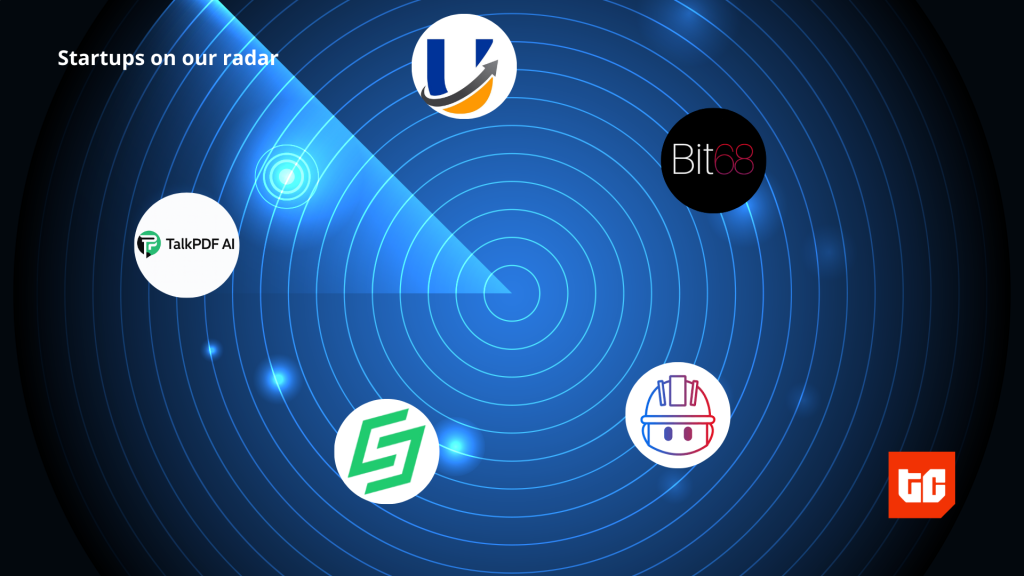
Getting a loan in Nigeria is never a stroll in the park. Loan processes are often riddled with high-interest rates and strenuous paperwork which can be a major hindrance for borrowers, making it a daunting and time-consuming endeavor. While access to credit is rife with challenges, it remains an important arsenal for every economy. Being able to borrow money at affordable interest rates is how households can build wealth, take advantage of opportunities, and take a bet on a business idea. Beyond building wealth, access to credit also offers some levels of protection from economic shocks such as job losses, ill health, or other emergencies.
[ad]
Despite a repertoire of advantages, Nigerians still lag behind on access to credit as lenders struggle to find borrowers with sufficient collateral for the money they are requesting. Data from the Financial Inclusion Secretariat shows that formal sector credit penetration as a ratio of the adult population in Nigeria was below 5.3% in 2017. However, Credit Direct, the leading innovation-driven financial services company is bridging this gap by offering collateral-free loans to individuals.
Established 17 years ago, Credit Direct has proved to be a leading light in the Nigerian credit space, offering credit solutions to millions of customers in 24 states across the country. “Credit Direct was born at a time where the need for financial inclusion and the need to provide consumer credit in the Nigerian economy was a hot topic,” said Chukwuma Nwanze, MD/CEO of Credit Direct. The company’s loan offerings range between N30,000 and N5 million with an interest rate of 2.5% to 3.85%. Credit Direct offers loan tenors of 1 month to 36-month period.
Backed by FCMB, Credit Direct is Nigeria’s foremost non-bank lending company. “Around 2006, the Central Bank of Nigeria was pushing the concept of microfinance banks, and many banks were strengthening their retail banking divisions. FCMB’s response was a bit different, FCMB at the time thought of creating Credit Direct,” Nwanze remarked.
The company offers a suite of credit solutions which include providing personal loans to public sector employees who work for the Federal and State organizations, nano loans, merchant loans, and Buy Now Pay Later solutions (BNPL). The Nano loan feature offers users instant small loans—up to N30,000—to cover their expenses and repay in one month. Personal loans to government employees like the name suggest is Credit Direct’s loan solution for civil servants in the country. Civil servants can borrow as much as N5 million and repay in 36-month window. Credit Direct’s BNPL solution affords users the ability to buy the things they need and pay back in convenient monthly installments.
[ad]
All Beginnings Start Small
Credit Direct started by giving loans to civil servants. According to Nwanze, it has disbursed loans to over 1.5m civil servants across the country since inception. However, the company now extends its offerings beyond civil servants to merchants and individuals in the private sector. “This year alone we have given loans of over N5 billion to merchants nationwide, we expect that we will be doing 5 times or 6 times that amount next year,” Nwanze asserted.
While there are over 41.5 million of small businesses in Nigeria—95% of these do not have access to formal financing—less than 1% of the total banking credit is given to small businesses. Credit Direct is also working to meet the needs of a section of these small businesses—agent banking— by providing working capital for agent banking agents.
For every digital lender, giving out loans is the easy part, but loan recovery proves starkly difficult. However, Credit Direct has a high loan repayment rate of over 95%. “We are very specific with the kind of people we give out loans to. We have a risk management framework that ensures that the money that we give out comes back and our non-performing loan ratio is significantly lower than the regulatory threshold,” Nwanze said.
Credit Direct leverages technology to profile the customers who are capable of repaying. “Credit Direct leverages technology in making the right decisions with regards to customers. Our credit decisioning algorithms ensure we always have a high collection rate.” said Nwanze. According to Gboyega Adelowore, Chief risk officer at Credit Direct, the company works closely with a borrower’s employer—for loans given to civil servants—and operates a “deduction at source” collection model, where loan repayments are directly deducted from the borrower’s salary and remitted to the lender.
Credit Direct has its customers at heart, unlike other digital lenders whose repayment plans are steep, Credit Direct’s is different. “We structure our loans in such a way that our clients can live a normal life,” Nwanze said.
Innovating through Intrapreneurship: Innov8fest

As Nigeria’s number one non-bank lender, up is the only way for Credit Direct. Through its in-house competition—Innov8Fest—Credit Direct is leveraging intrapreneurship to provide unique credit solutions to broader problems and access untapped credit opportunities in the market. “We understand that as market leaders we will keep on innovating to maintain our market leadership position. So, for us Innovate Fest is a multi-pronged approach in maintaining our market share but also fostering a mindset of innovation, collaboration, and a cultural evolution within the organization,” Nwanze said.
For the contest, 25 teams were formed from across the company’s 700 employees. Seven teams scaled through to the final round of the contest proffering solutions that include: A service now pay later solution for automobile and payment services that shares similarities with a BNPL model, an AI-powered loan automated response assistant, a high yield digital wealth product and a tuition loan product among others.
According to Nwanze, the unique solutions from the teams will be refined through Credit Direct’s “ideas incubator” and incorporated into Credit Direct’s product offerings in the coming year. “I think by the second half of next year, there will be a number of these products added to our product portfolio, and between 2025-2027 they will be contributing significantly to our bottom line,” he remarked.
As Credit Direct continues to provide credit access to Nigerians, it is doubling down on its embedded finance product for the future. “We are working on products that can serve the SME market and in their little way contribute to the growth of the Nigerian economy. If we can fix the lack of access to capital for Nigerian SMEs in a profitable way, then by all means, count Credit Direct in,” Nwanze said.
While speaking on the future of lending on the continent, Nwanze said “In the future, lending will be wholly digital, and all lenders will be able to leverage best-in-class technology, artificial intelligence and big data analytics to provide personalized lending services to customers. Lenders will be able to ride on APIs and partnerships within captive ecosystems where lenders would not have to build the lending infrastructure by themselves to provide credit to customers.”










